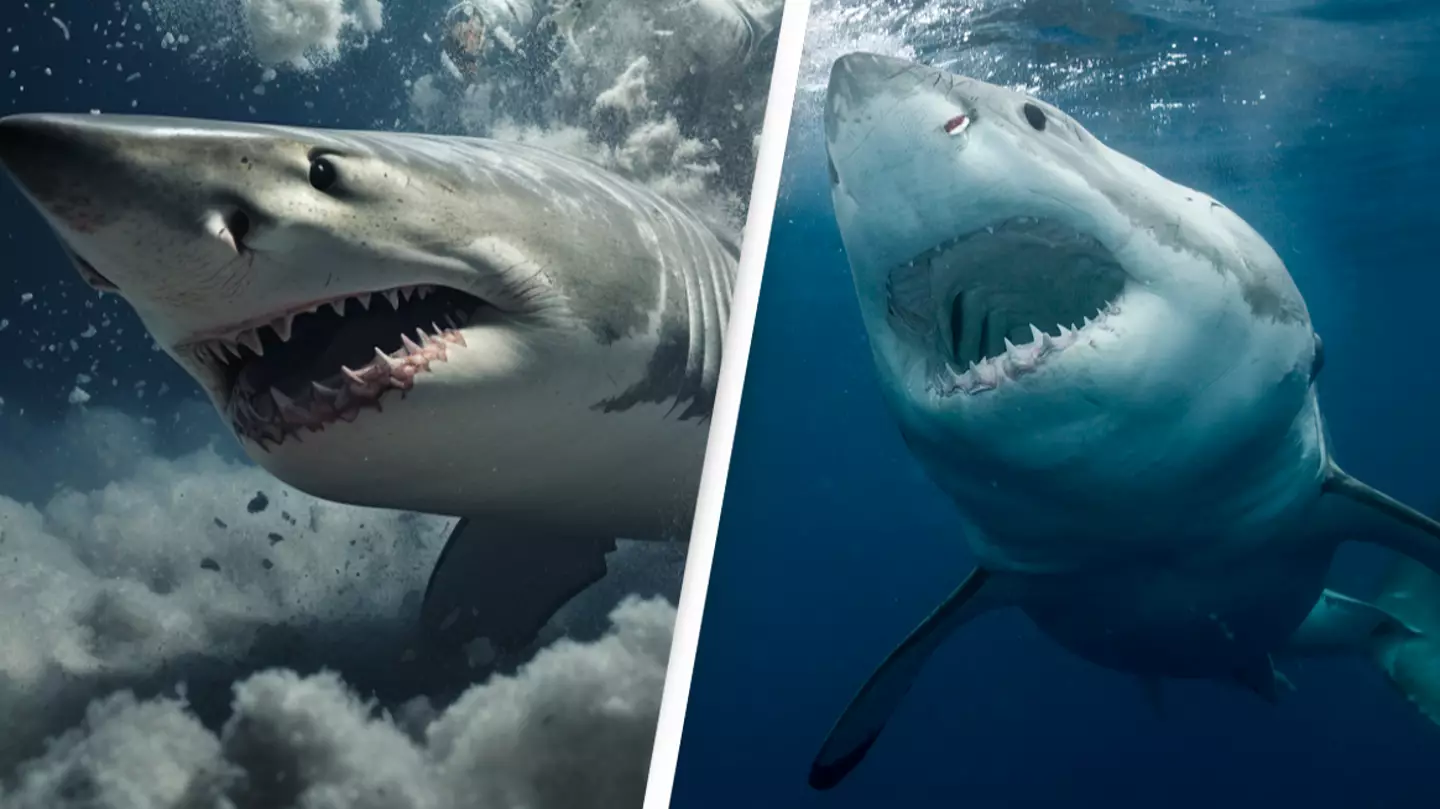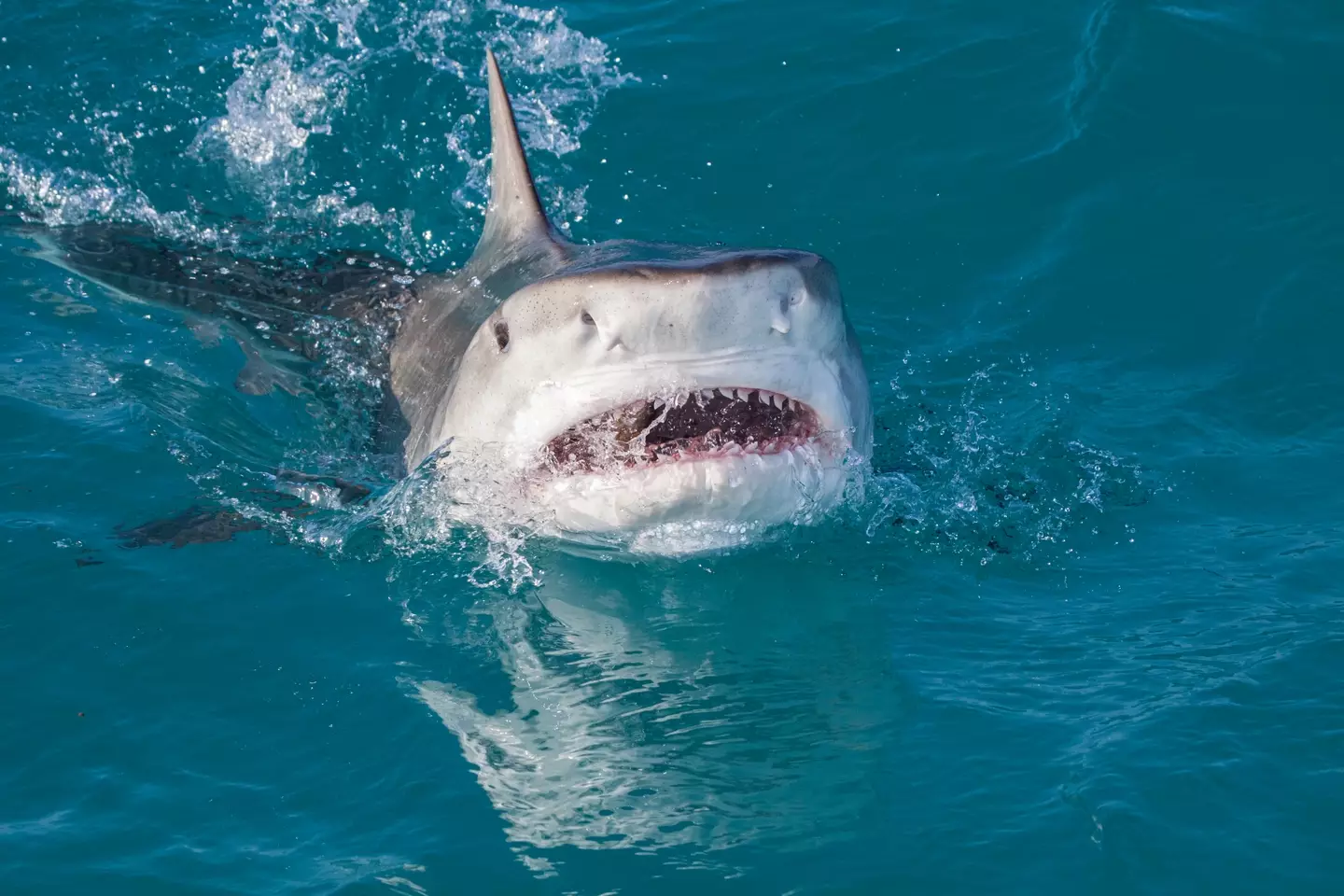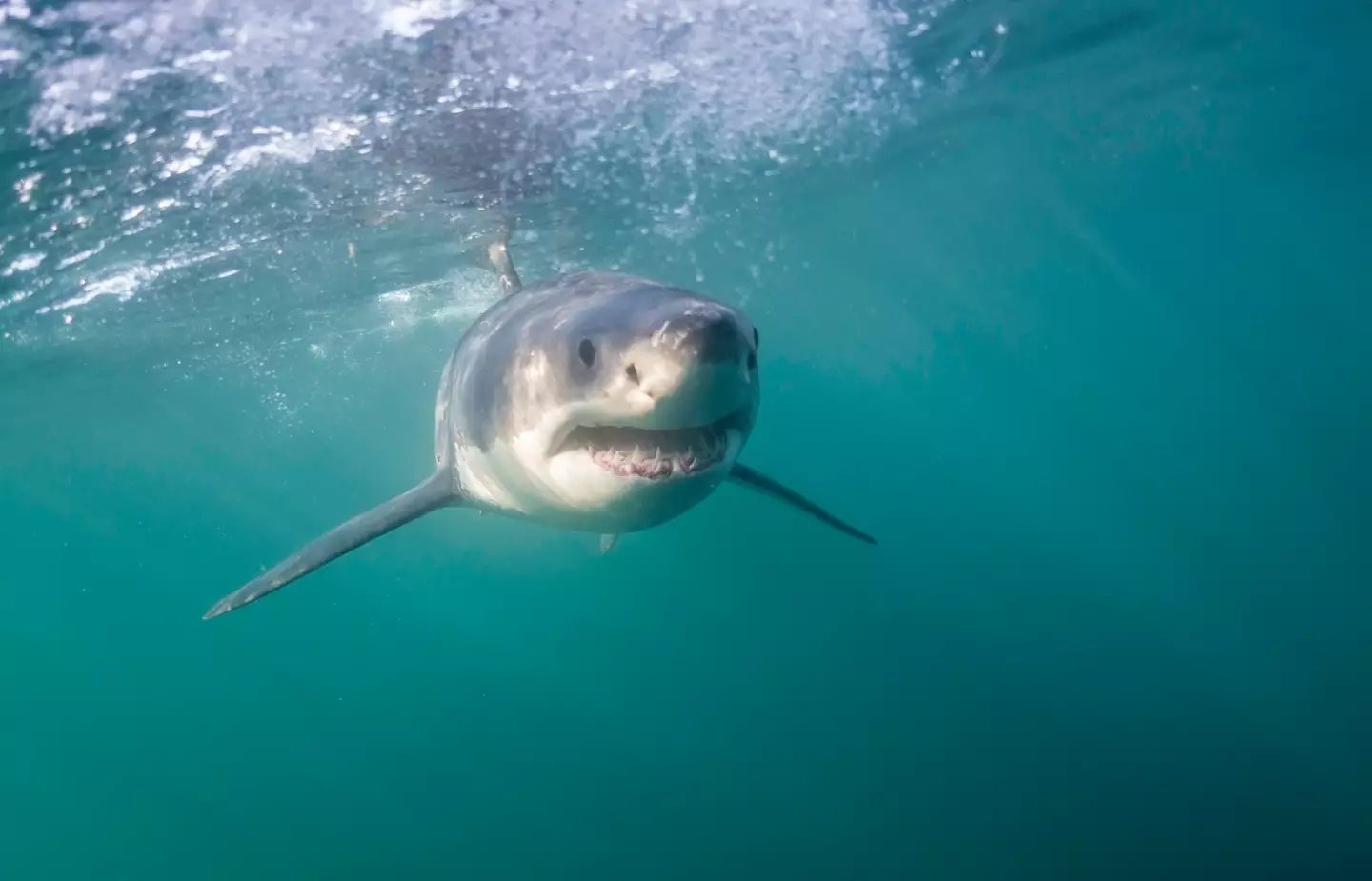
You’ve heard of Cocaine Bear, now get ready for Cocaine Sharks.
While it sounds like a dodgy sequel, drug-addled sharks could be a very real phenomenon off the coast of Florida.
It’s now theorised that sharks could be coming into contact with the narcotic, as smugglers dump huge hauls out to sea.
Advert
Researcher Tom ‘The Blowfish’ Hird is entering uncharted waters, as he investigates the bizarre theory as part of Discovery’s Shark Week programmes.
Alongside environmental scientist Tracy Fanara, the pair carry out various experiments to confirm if and how the sharks might have been ingesting cocaine.

Their research centred around the Florida Keys, which is where many of the stories about the high hammerheads began.
Advert
Yes, it may sound like a shark’s tail, but there have been several major discoveries of cocaine hauls in the area.
Earlier this year, more than 140 pounds washed up in Lower Keys to the utter shock of locals.
Even more concerning is Hird’s encounter with sharks that exhibit rather weird behaviours, such as a hammerhead swimming crookedly.
In another part of the show, scientists spot a sandbar shark which seems to be stalking something which isn’t there.
Advert
However, they don’t just stop there as they delve into the investigation about Narco-fuelled fish.

Hird and his team even drop fake cocaine bales into the water to test theories, with some surprising results.
Rather than ignoring the packages, the sharks swarm and even take bites – showing just how easily the scenario could occur.
Advert
Understandably, the scientists never introduce the animals to the real narcotic, as it would be unethical – not to mention insanely expensive.
Instead, they switch out the bales for highly concentrated balls of fish powder, which are thought to induce the same dopamine hit as cocaine.
It’s not long before the ‘drug’ soon starts to take effect on the animals.
"I think we have got a potential scenario of what it may look like if you gave sharks cocaine," Hird tells camera crews: "We gave them what I think is the next best thing. [It] set [their] brains aflame. It was crazy."
Advert
Though this doesn’t confirm the theory, it certainly shows how easily humanity can have a negative and surprising effect on the environment.
Shockingly, drugs might not be the only problem in open waters.
He told LiveScience: “The other thing we might find is actually this long flow, [this] drip of pharmaceuticals: caffeine, lidocaine, cocaine, amphetamine, antidepressants, birth control — this long slow drift of them from cities into the [ocean] is… starting to hit these animals."
Cocaine Sharks is currently being broadcast as part of Discovery’s annual Shark Week programming.
Topics: Drugs, Environment, Shark, Film and TV
